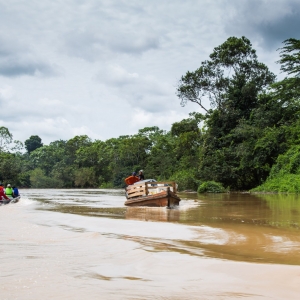Federal Water Tap, August 2: Senate Begins Infrastructure Bill Debate
The Rundown
- Senators release details of their infrastructure deal.
- The EPA offers grant funding to research public acceptance of recycled water.
- The EPA also prepares to strengthen pollution limits for coal-fired power plants and outlines its plan for defining waterways protected by the Clean Water Act.
- A watchdog agency says FEMA should make better use of updated flood-risk data.
- And lastly, federal agencies host a webinar this week to discuss droughts that appear suddenly and intensify quickly.
“So many people have given up on the Senate. They have given up on Congress. They have given up on our ability to be able to do the big things. This is big. This is a big deal. I don’t care who is looking at it any way they can.” — Sen. Joe Manchin (D-WV) discussing the infrastructure package now before the Senate.
By the Numbers
$6.5 million: Federal research grants available for studying how to increase public acceptance of recycled water. The EPA, which is sponsoring the grants, says that funds will be split between two recipients. Universities and public and private research institutions are eligible but must meet a 25 percent cost-share. Applications are due September 29.
News Briefs
Infrastructure Deal
The Senate began debate on a bipartisan infrastructure package with $550 billion in new spending.
The bill is wide-ranging, encompassing grants, loans, and pilot programs for everything from cybersecurity and broadband to school buses, culvert replacement, and grid resilience.
Some $55 billion is directed to clean water.
The $8.3 billion for western water infrastructure includes money for storage and conveyance ($1.15 billion), repairing aging dams, power plants, and canals ($3.2 billion), rural water projects ($1 billion), water recycling ($1 billion), and ecosystem restoration ($250 million).
Responding to Oil Spills
The U.S. Environmental Protection Agency added new requirements for monitoring the use of dispersants to clean up oil spills in navigable waters, shorelines, and the ocean.
WOTUS Revisions, Again
The EPA also laid out its plan for identifying which waterways are protected by the Clean Water Act. This is the third consecutive presidential administration to take up the issue, each reversing the decision of its predecessor.
The Biden administration’s plan has two steps. First, reinstate the pre-2015 rules. Then, a second rule-making will put in place the administration’s preferred definition, which is expected to be more protective than the Trump-era rule.
Studies and Reports
Drought Effect on Agriculture
The U.S. Department of Agriculture is publishing weekly reports that track key environmental factors affecting farmers and ranchers in the western United States. The reports highlight data on temperature, precipitation, heat stress, and soil moisture.
Federal Flood Insurance Gaps
FEMA should use its updated information on flood risk to reassess which properties are required to purchase federal flood insurance, an audit from Congress’s watchdog agency found.
The Government Accountability Office says that FEMA should use data beyond its floodplain maps to identify properties needing flood insurance.
On the Radar
Coal Power Plant Water Pollution
The EPA indicated that it will strengthen rules that limit the amount of toxic metals that coal-fired power plants are allowed to discharge into waterways.
The agency expects a draft rule in the fall of 2022.
Flash Drought Webinar
Federal agencies are hosting a webinar on August 3 to discuss current knowledge about “flash” droughts — those that develop rapidly and intensely.
Federal Water Tap is a weekly digest spotting trends in U.S. government water policy. To get more water news, follow Circle of Blue on Twitter and sign up for our newsletter.
Brett writes about agriculture, energy, infrastructure, and the politics and economics of water in the United States. He also writes the Federal Water Tap, Circle of Blue’s weekly digest of U.S. government water news. He is the winner of two Society of Environmental Journalists reporting awards, one of the top honors in American environmental journalism: first place for explanatory reporting for a series on septic system pollution in the United States(2016) and third place for beat reporting in a small market (2014). He received the Sierra Club’s Distinguished Service Award in 2018. Brett lives in Seattle, where he hikes the mountains and bakes pies. Contact Brett Walton






Leave a Reply
Want to join the discussion?Feel free to contribute!